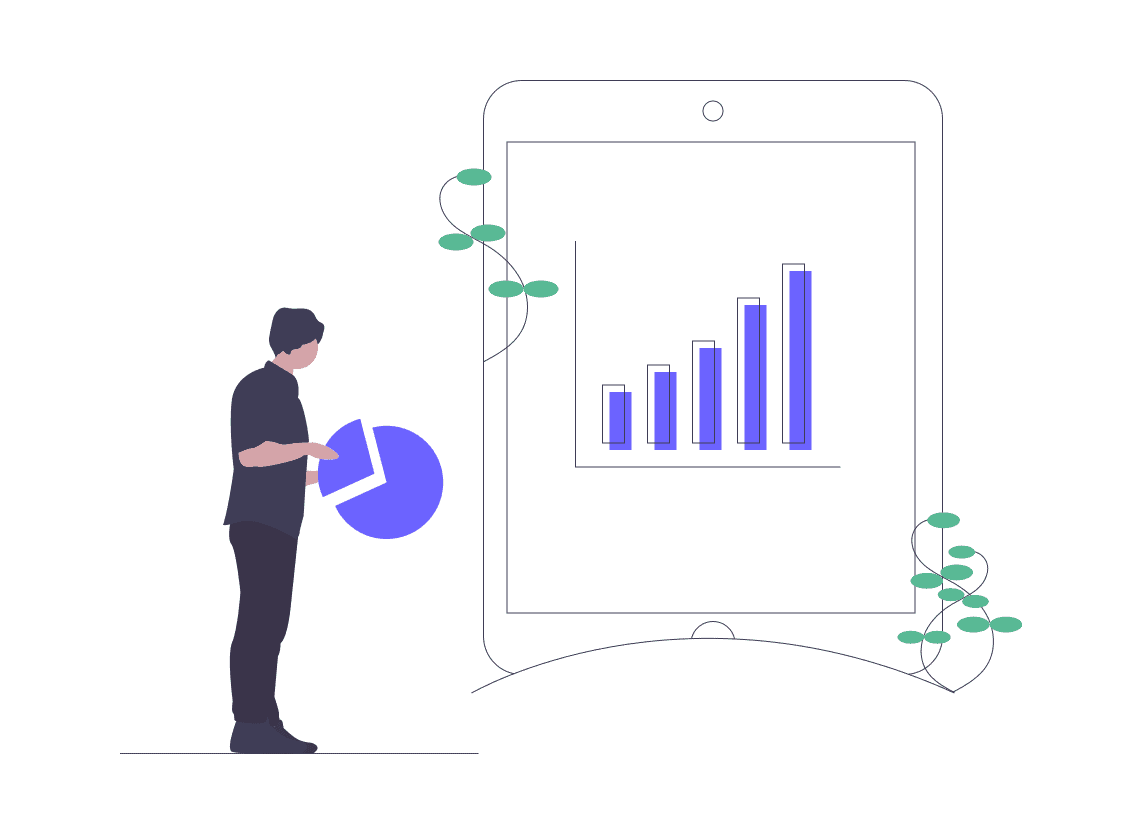In the fast-paced world of social media, every detail counts. Among the many tools and tactics available to boost your presence and increase engagement, link shorteners are a simple yet powerful way to improve the reach of your external content. Whether you’re sharing blog posts, product pages, or event invites, link shorteners can streamline your social media strategy and maximize your impact.
By converting long, cumbersome URLs into concise, easy-to-share links, link shorteners help you make the most of the limited space available on platforms like Twitter, Facebook, Instagram, and LinkedIn. But beyond aesthetics and character limits, they also provide valuable insights into how your content performs, making them an essential tool for any social media marketer.
In this article, we’ll explore how link shorteners can enhance your social media reach, discuss best practices for using them effectively, and compare different link-shortening strategies to help you decide what works best for your brand.
Why Link Shorteners Are Important for Social Media Marketing
Link shorteners have become a critical part of social media marketing, and for good reason. They offer several benefits that go beyond just creating cleaner, more visually appealing links. Here’s why using link shorteners can improve your social media reach and overall content distribution:
1. Space Efficiency
Most social media platforms have character limits, especially Twitter, which restricts posts to 280 characters. Long URLs can quickly eat up valuable space, leaving less room for your message. Shortened links free up more space for your copy, hashtags, and calls-to-action, allowing you to communicate more effectively.
2. Improved Aesthetics
Long URLs are not only unwieldy but can also look cluttered and unprofessional. A clean, shortened link enhances the appearance of your posts and makes your content more attractive to click on. This is especially important on platforms like Instagram, where visual appeal plays a significant role in engagement.
3. Increased Click-Through Rates (CTR)
People are more likely to click on a link that looks tidy and well-structured than a long, messy one. Link shorteners can help increase your CTR by making your posts look more organized and user-friendly. In fact, studies show that shortened links can increase CTR by as much as 34%.
4. Tracking and Analytics
One of the most valuable features of link shorteners is the ability to track performance. Most link shorteners provide detailed analytics that show you how many people clicked on your link, where those clicks came from, and even the devices they used. This data is crucial for refining your social media strategy, identifying which platforms drive the most traffic, and optimizing future campaigns.
5. Custom Branding
Some link shorteners allow you to create custom, branded short links. Instead of using a generic shortened URL, you can incorporate your brand name or a relevant keyword. For example, instead of “bit.ly/abc123,” you could use “yourbrand.ly/sale.” Branded links build trust with your audience, increase brand recognition, and make your content stand out in crowded social feeds.
Best Practices for Using Link Shorteners on Social Media
To get the most out of link shorteners, it’s important to use them strategically. Here are some best practices to help you effectively leverage link shorteners in your social media marketing:
1. Choose the Right Shortener for Your Needs
Not all link shorteners are created equal. Some offer advanced analytics, custom branding, and even A/B testing, while others focus solely on basic shortening functionality. Before choosing a tool, evaluate your needs. If you require detailed performance data, opt for a shortener that provides robust analytics. If branding is a priority, look for one that offers custom domains.
2. Use Custom-Branded Links
Whenever possible, use custom-branded links rather than generic ones. Branded links not only reinforce your brand identity but also help establish trust with your audience. People are more likely to click on a link that clearly comes from a reputable source. Custom short links also make it easier for your audience to remember and share your content.
3. Incorporate Keywords in Short Links
If custom branding isn’t an option, try incorporating relevant keywords into your shortened links. Keywords give users a hint about the content they’re clicking on and can boost your SEO efforts as well. For example, if you’re promoting a new blog post about social media tips, a shortened link like “bit.ly/sm-tips” gives your audience a clear idea of what to expect. You can also use AI to SEO content.
4. Track and Analyze Performance
One of the main advantages of using link shorteners is access to performance data. Make sure you’re regularly reviewing the analytics provided by your link shortener to track the success of your campaigns. Look at metrics like CTR, geographic location, and referral sources to understand which platforms and strategies are driving the most traffic to your content.
5. Avoid Overusing Shortened Links
While shortened links are valuable, using too many in a single post can look spammy and reduce engagement. Limit your use of shortened links to one or two per post to keep your content looking clean and professional. If you need to share multiple links, consider using a link-in-bio service for platforms like Instagram.
Similarities and Differences: Comparing Link Shorteners and URL Redirects
Link shorteners are often compared to URL redirects, as both serve the purpose of guiding users to a different web address than the one they initially see. However, while they share some similarities, there are key differences that affect how and when you should use each. Let’s explore five main points of comparison between link shorteners and URL redirects.
| Aspect | Link Shorteners | URL Redirects | Similarities and Differences |
| Purpose | Primarily used for shortening URLs for easy sharing | Used to permanently or temporarily redirect users to a different URL | Both guide users to a different destination but serve different strategic goals. |
| Use Cases | Ideal for social media, email campaigns, and quick sharing | Commonly used for website migrations, fixing broken links, or rebranding | Link shorteners focus on social media reach, while redirects handle backend site changes. |
| Tracking & Analytics | Most provide detailed analytics for clicks and engagement | Typically don’t offer user-facing analytics unless integrated with tracking tools | Link shorteners excel at tracking social media engagement, while redirects require extra setup. |
| Customization | Allows for custom-branded links | Customization depends on server setup and redirect type | Both can be customized, but shorteners are easier for quick branding changes. |
| Implementation | Simple, often done through a third-party tool | Requires access to server settings or headless CMS for setup | Link shorteners are user-friendly, whereas redirects require more technical knowledge. |
This comparison highlights that while link shorteners and URL redirects both redirect users to another destination, link shorteners are the preferred tool for social media sharing, analytics, and branding. URL redirects, on the other hand, are better suited for managing changes on the backend of your website, such as redirecting old URLs after a site migration.
The Role of Link Shorteners in SEO
An often-overlooked aspect of link shorteners is their impact on search engine optimization (SEO). While shortened links themselves don’t directly influence your site’s SEO, they can affect it indirectly. Here’s how:
1. Referral Traffic Tracking
Link shorteners with analytics allow you to track where your traffic is coming from. By understanding which social media platforms drive the most traffic to your site, you can optimize your content strategy to focus on those channels, ultimately improving your SEO performance. Utilizing MSP SEO services can further enhance this by offering expert strategies tailored to maximize search engine visibility and drive more targeted traffic to your site.
2. Branded Links and Trust
As mentioned earlier, branded links can build trust with your audience. When users trust your links and consistently click on them, it increases customer engagement and time spent on your site, both of which are positive signals to search engines.
3. Reduced Spam Risks
Using reputable link shorteners can reduce the risk of your links being marked as spam. Spammy-looking URLs can lead to penalties from both social media platforms and search engines, hurting your SEO and reach. Choosing a trusted link shortener ensures your links maintain a clean reputation.
Conclusion
Link shorteners are an essential tool for improving the reach and effectiveness of your external content on social media. By condensing long URLs into sleek, trackable links, you can optimize your posts for better engagement, monitor performance, and even strengthen your brand through custom domains.
Whether you’re manually shortening links or using advanced tools, following best practices such as tracking analytics, incorporating branding, and maintaining a professional appearance will help maximize the impact of your social media campaigns. Understanding the differences between link shorteners and other redirect strategies also deepens your ability to use these tools strategically across various marketing efforts.
By implementing these tactics, you can enhance your social media presence, drive more traffic to your external content, and make data-driven decisions that lead to long-term growth and success.



